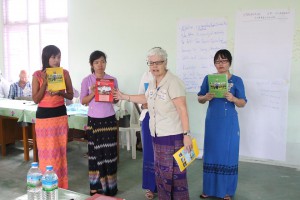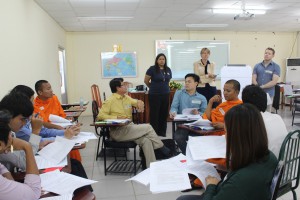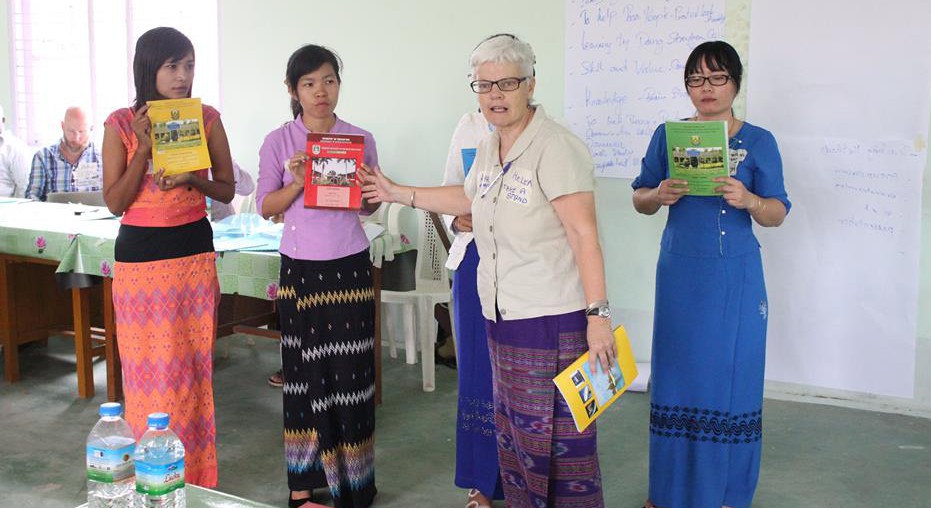Nattakan Chomputhong (Ann), Regional Legal Ethics, Pro Bono, Access to Justice, Professional Responsibility Initiative Coordinator; Legal Trainer
On July 22 and 23, 2013, BABSEACLE, BABSEACLE Australia, BABSEACLE Singapore Ltd., BABSEACLE Foundation, in conjunction with DLA Piper/New Perimeter, Herbert Smith Freehills (HSF), and the Australian Government Solicitor (AGS), embarked upon an exciting project to develop a specific type of clinical legal education (CLE) curriculum for university students both in the Asia region and potentially globally. The focus was on pro bono, ethics, professional responsibility and access to justice, and provided a practical framework for universities and teaching staff to deliver interactive and experience-based teaching to students.
The initial stage of the project involved lawyers, from participating firms and the Australia Government Solicitors (AGS) office, who attend a two-day workshop, that was hosted by Herbert Smith Freehills (HSF) and co-supported by DLA Piper/New Perimeter and the AGS. The workshop was delivered by BABSEACLE, and was designed to familiarise team members with BABSEACLE’s unique teaching methodology and to provide an opportunity for team members to get to know each other. We worked together to develop and refine the course content, and developed lesson plans for the interactive sessions.
Targeting participation in case studies, active discussions and debate, we hope that the curriculum will assist students to develop the ability to identify and evaluate risks connected with the ethical issues explored. The curriculum further provides a means to legal educators to teach practical ways of dealing with associated problems and to instill a pro bono and access to justice ethic.
Once the materials were developed, we held a number of testing workshops with university lecturers and students, and used their feedback to refine the materials, before teaching it at universities in Laos, Vietnam, Cambodia, Thailand and Myanmar. We anticipate that this curriculum will be rolled out across other universities in Asia and worldwide in the future.
 |  |
After revising and editing the curriculum we have been delivering many workshops to lecturers focusing on “training of trainers”. It is our hope and intent that they will spread the initiative and train others to use the teaching methods of the curriculum. These workshop though do not only apply to the lecturers, but also to lawyers, law councils and continuing legal education programs. As an example, on December 17, we worked with a group of twenty prosecutors in Mandalay, Myanmar exposing to the curriculum and demonstrating how to use it for their own purposes and to teach to others.
The development and delivery of this curriculum, through universities and other ways, provides the basis for a sustainable and effective CLE movement, which will equip future lawyers with the ability to uphold the reputation and standards of the legal profession, with the skills required to address day-to-day professional ethical issues, and with the capacity to conduct themselves as competent legal practitioners. As such, they and practicing lawyers from across the region may then raise awareness of the importance of ethics and access to justice issues among future law students.

